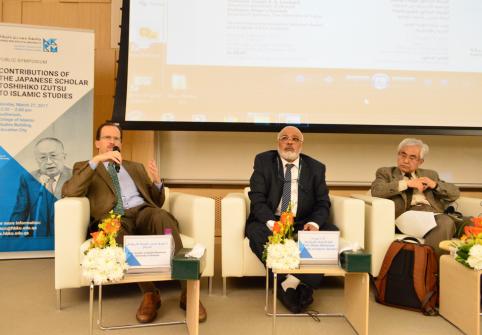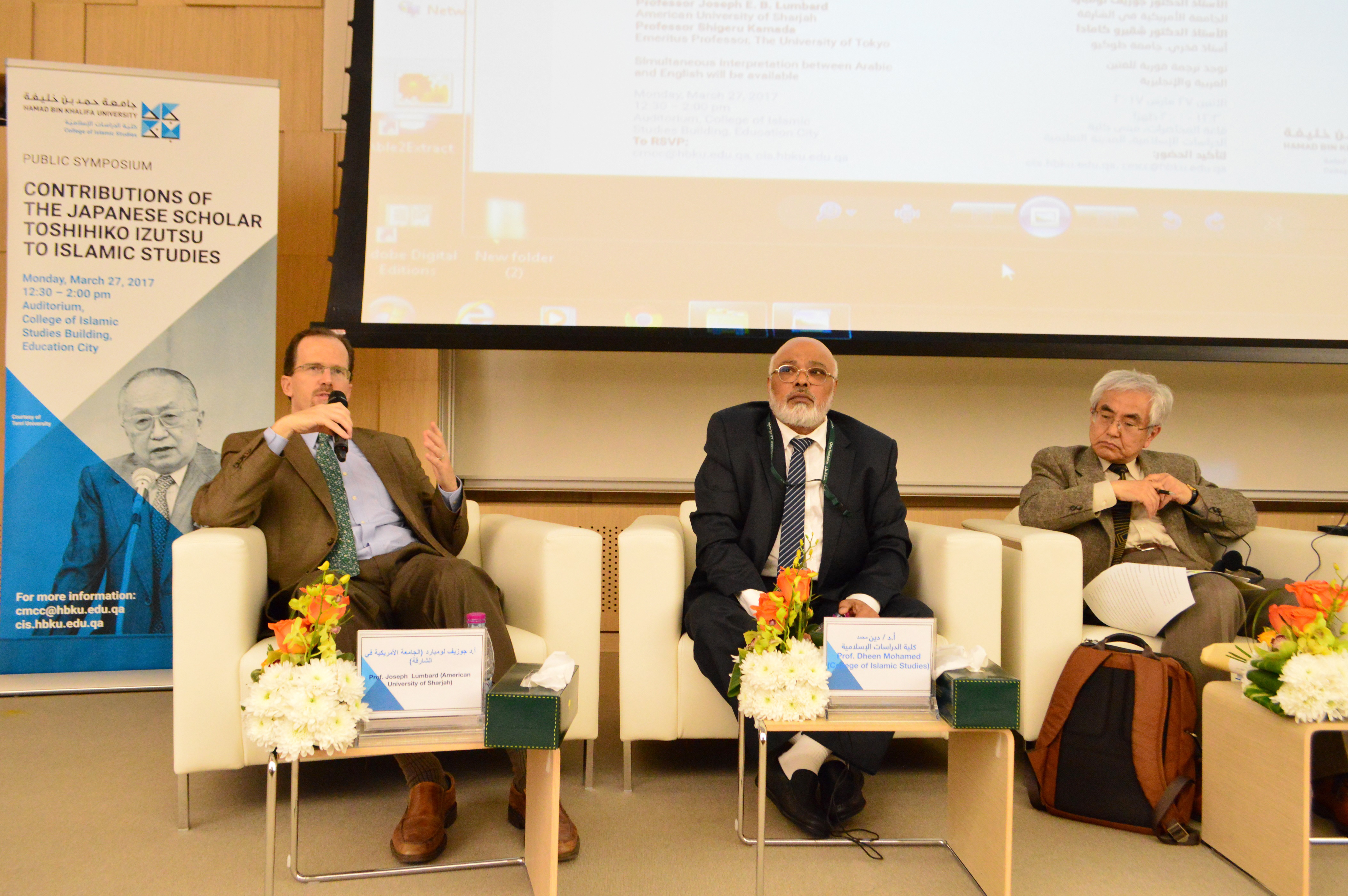News
HBKU’s College of Islamic Studies looks into the contributions of a notable Japanese scholar to Islamic Studies
30 Mar 2017
Dr. Toshihiko Izutsu is a notable Japanese scholar who has brought incredible insights into the understanding of Islam in contemporary Japan. Fluent in over 30 languages and one of the most influential scholars of our time, Dr. Izutsu has enlightened millions with his incredible insights of Islamic theology and interpretation of the Quran.
Hamad Bin Khalifa University’s Muhammad bin Hamad Al-Thani Center for Muslim Contributions to Civilization (CMCC), part of the College of Islamic Studies (CIS), shed light on the scholar through a public symposium titled “The Contributions of the Japanese Scholar Toshihko Izutsu to Islamic Studies”. The symposium, which was led by William Chittick, Professor in the Department of Comparatives Studies at the State University of New York and one of the world’s leading translators and interpreters of Jalaluddin Rumi’s mystical poetry, explored Dr. Toshihiko Izutsu’s linguistic contributions, philosophical beliefs and interpretation of Islamic theology.
Dr. Chittick was joined by a number of experts, notably Dheen Mohamed, Professor of Comparative Religion at HBKU’s CIS, Dr. Joseph E. B. Lumbard, Assistant Professor in the Department of Arabic and Translation Studies at the American University of Sharjah, and Kamada Shigeru, Professor Emeritus of Islamic Studies at the University of Tokyo.
Dr. Izutsu was the first non-Muslim scholar to highlight several linguistic aspects of the Quran, all of which are now being used by various scholars as a benchmark for linguistic accuracy. In addition, his publishings on Quranic semantics and analysis of Islamic teachings have unveiled a whole new outlook on Quranic studies, thus forming the basis of Qatar's Islamic persona.
CIS’s CMCC strives to provide non-Arabic speakers with access to scholarly works, which underscore the contributions Muslims have made to human civilization.
